
Temple F. Smith
Boston University, MA
Dr. Temple Smith obtained his PhD in Nuclear Physics from the University of Colorado in 1969, followed by an NIH (USA) postdoctoral fellowship under the direction of the mathematician, Stanislaw Ulam, and the molecular biologist, John R. Sadler. He is one of the founders of GenBank, initially at Los Alamos National Laboratory, and the co-developer, with Michael Waterman, of the Smith-Waterman sequence alignment algorithm. Beginning in 1988 he organized the “Genes and Machines” conference series in bioinformatics. As director of the Boston University BioMolecular Engineering Research Center, he directed the research of over twenty Post-doctoral and grad students. That research focused on protein evolution of the WD-repeat family; the Lifeguard apoptotic regulatory family; the evolutionary of the Drosophila clade, and the origin and evolutionary of the genetic translation system. He is a follow of the American Association for the Advancement of Science (AAAS), and a fellow of the ISCB. He has 200 plus reviewed scientific publications. In 2011 he was elected Emeritus Professor of BioMedical Engineering at Boston University. He is an avid skier, ice climber, sailor, hockey coach and family man. He is also the co-founder of a gene engineering company, Modular Genetics.
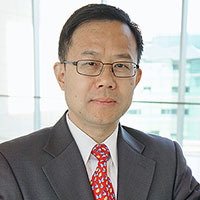
Baowei Fei
The University of Texas at Dallas and UT Southwestern Medical Center, TX
Dr. Fei is a Professor and Cecil H. and Ida Green Chair in Systems Biology Science in the Department of Bioengineering at the University of Texas at Dallas. He is also a Professor in the Department of Radiology at UT Southwestern Medical Center. Before he was recruited to UT Dallas, Dr. Fei was Associate Professor with tenure in the Department of Radiology and Imaging Sciences and Department of Mathematics & Computer Science at Emory University where he was Director of the Precision Imaging – Quantitative, Molecular & Image-Guided Technologies Program. He was a Georgia Cancer Coalition Distinguished Scholar, served as a faculty member, and mentored Ph.D. students in the Joint Department of Biomedical Engineering at Emory University and Georgia Institute of Technology. Dr. Fei is Director of Quantitative Bioimaging Laboratory (www.fei-lab.org). The mission of his research lab is to shape and advance the science and technology of biomedical imaging through innovative research and inspiring education, with the goal of becoming a destination laboratory internationally recognized as a first choice of both researchers and students. Dr. Fei is a Fellow of the International Society for Optics and Photonics (SPIE) and a Fellow of the American Institute for Medical and Biological Engineering (AIMBE).
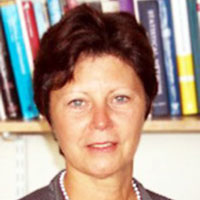
Lucia M. Vaina
Boston University, MA
Dr. Vaina presently serves at Boston University as a Professor in the Department of Biomedical Engineering and a Research Professor of Neurology in the School of Medicine. Dr. Vaina is also associated with the Neurology Department at Massachusetts General Hospital and the Harvard Medical School-Department of Neurology. She is Director of the Brain and Vision Research Laboratory at Boston University and co-director of the Neurology of Vision Laboratory at Massachusetts General Hospital. Dr. Vaina has published 144 peer-reviewed research articles and has authored/edited five books on cognitive and visual science. She served as a charter member of the National Institute of Health (NIH) Perception and Cognition Study Section, and on the National Science Foundation, Brain Initiative Review Panel. Dr. Vaina holds a Ph. D. in Mathematical Logic from Sorbonne, France, and an M.D./Ph.D. from the University of Toulouse, France. Dr. Vaina’s main areas of current interest involve: (a) models of visual motion analysis in the human brain based on computational, psychophysical, structural and functional-neuroanatomical methods; (b) functional plasticity-learning and neurocovery: psychophysics, functional neuroimaging, and neuronal network models; (c) Functional MRI of the human visual system.
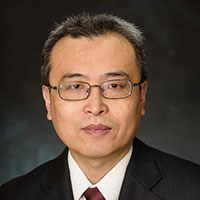
Xiaojun Yu
Stevens Institute of Technology, NJ
Dr. Xiaojun Yu is an Associate Professor, Biomedical Engineering at Stevens Institute of Technology. His primary research interests focus on tissue engineering, polymeric biomaterials and drug delivery. His current research activities include nano- and micro-scale functionalization of biomimic three-dimensional scaffolds for neural and musculoskeletal tissue repair and regeneration, investigation of cell and material interactions in bioreactors, development of controlled release systems for the delivery of growth factors and drugs, manipulation of microenvironment for stem cell proliferation and differentiation.
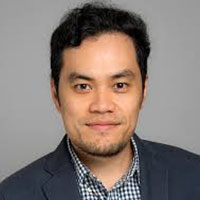
Pai-Yen Chen
University of Illinois, IL
Dr. Pai-Yen Chen is Associate Professor in the Department of Electrical and Computer Engineering at University of Illinois at Chicago, Chicago, IL, USA. His group conducts interdisciplinary research dedicated to applied electromagnetics, RF/microwave antennas and circuits, ubiquitous and multispectral sensing technology, RFIDs and IoT devices for wireless health, smart city, among many others, as well as micro/nano-scale electromagnetism, including plasmonics, metamaterials and nanophotonics. He serves as an Associate Editor of IEEE Journal of Electromagnetics, RF and Microwaves in Medicine and Biology (IEEE JERM), IEEE Sensors Journal, and IEEE Journal of Radio Frequency Identification (IEEE JRFID). He is Founder and Chair of IEEE Sensors Council Chicago Chapter.
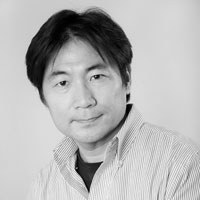
Kenji Suzuki
Illinois Institute of Technology, IL
Kenji Suzuki, Ph.D. (by Published Work; Nagoya University) worked at Hitachi Medical Corp., Japan, Aichi Prefectural University, Japan, as a faculty member, and in Department of Radiology, University of Chicago, as Assistant Professor. In 2014, he joined Department of Electric and Computer Engineering and Medical Imaging Research Center, Illinois Institute of Technology, as Associate Professor (Tenured). In 2017, he was jointly appointed in World Research Hub Initiative (WRHI), Institute of Innovative Research (IIR), Tokyo Institute of Technology, Japan, as Specially Appointed Professor (equivalent to Visiting Professor). He published 330 papers (including 110 peer-reviewed journal papers). He has been actively studying deep learning in medical imaging and computer-aided diagnosis in the past 25 years. His papers were cited more than 13,000 times, and his h-index is 47. He is inventor on 30 patents (including ones of earliest deep-learning patents), which were licensed to several companies and commercialized. He published 11 books and 22 book chapters and edited 13 journal special issues. He was awarded several grants as PI including NIH R01 and ACS. He gave 120 invited talks and keynote speeches at international conferences. He received 26 awards, including Springer-Nature EANM Most Cited Journal Paper Award 2016 and 2017 Albert Nelson Marquis Lifetime Achievement Award.